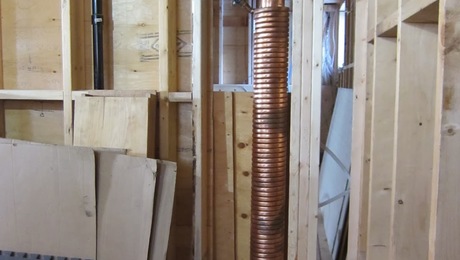I follow a guy on Instagram that builds houses for folks with endless amounts of money. He recently featured this product, and I thought it was pretty interesting. They are priced around $450 via supply house. If it works as advertised I’d say it has a pretty good ROI.

 ecoinnovation.ca
ecoinnovation.ca

residential drain water heat recovery
HOW DOES DRAIN WATER HEAT RECOVERY WORK?A simple, comfortable and maintenance free passive water heater booster that uses waste heat energy to preheat
 ecoinnovation.ca
ecoinnovation.ca


